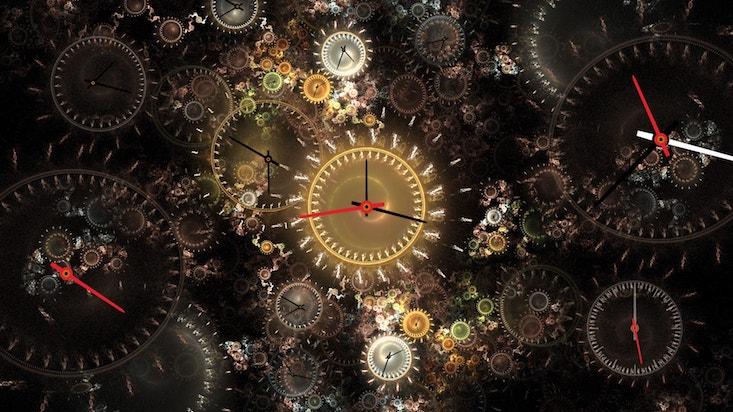Rovelli challenges our common-sense notion of time, starting with the idea that it ticks everywhere at a uniform rate. In fact, clocks tick slower when they are in a stronger gravitational field. When you move nearby clocks showing the same time into different fields—one in space, the other on Earth, say—and then bring them back together again, they will show different times. “It’s a fact,” Rovelli said, and it means “your head is older than your feet.” Also a non-starter is any shared sense of “now.” We don’t really share the present moment with anyone. “If I look at you, I see you now—well, but not really, because light takes time to come from you to me,” he said. “So I see you sort of a little bit in the past.” As a result, “now” means nothing beyond the temporal bubble “in which we can disregard the time it takes light to go back and forth.”
Rovelli turned next to the idea that time flows in only one direction, from past to future. Unlike general relativity, quantum mechanics, and particle physics, thermodynamics embeds a direction of time. Its second law states that the total entropy, or disorder, in an isolated system never decreases over time. Yet this doesn’t mean that our conventional notion of time is on any firmer grounding, Rovelli said. Entropy, or disorder, is subjective: “Order is in the eye of the person who looks.” In other words the distinction between past and future, the growth of entropy over time, depends on a macroscopic effect—“the way we have described the system, which in turn depends on how we interact with the system,” he said.
What a fascinating and thought-provoking talk. I really love these types of talks that shake up the way you look at the world.
See nautil.us/blog/-forget-everyth… where there is also an embedded copy of the video.
#time

